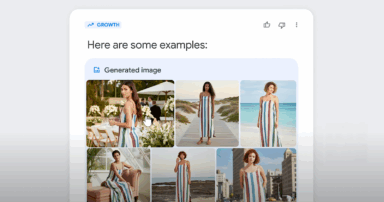Google Launches AI-Powered Ad Campaign Tools, Sparking Control Debate
Google unveiled three new AI-powered tools designed to automate advertising campaigns. While promising increased speed and efficiency, these tools have raised concerns among advertisers regarding control and transparency.
New AI Tools for Google Ads
1. Google Ads Agentic Expert
This AI agent manages campaigns automatically, performing tasks such as:
- Creating ad groups and matching creative assets
- Adding keywords and implementing creative suggestions
- Resolving policy issues and submitting appeals
- Generating reports and answering campaign questions
2. Google Analytics Data Expert
This tool simplifies data analysis by automatically identifying insights and trends. Visualizations make it easier for marketers to understand performance patterns without extensive Analytics expertise.
3. Marketing Advisor Chrome Extension
Launching later this year, this extension manages tasks across multiple platforms, including:
- Automated tagging and tag installation
- Seasonal trend analysis
- Cross-platform problem diagnosis
The extension works with Google Ads, Analytics, external websites, and content management systems.
Advertiser Concerns Regarding AI Control
During a press session, Google executives addressed concerns from industry professionals about the new AI tools.
Control and Change Tracking
Advertisers questioned how AI-implemented changes would be documented in Google Ads' change history. Executives acknowledged uncertainty about the specifics of this tracking.
“That’s a great question. I don’t know if it’ll show up with your username or like you and the agent’s username.”
This lack of clarity raises concerns for agencies and brands that require detailed change records for client reporting and internal approvals.
“We’ve seen the ‘googlification’ of the Google help desk. Getting to a human is hard. This seems like it’s going down the path of replacing that.”
Google representatives reassured attendees that human support would remain available.
“That’s not the intention. You will still be able to access support in the ways you can today.”
Transparency and Content Labeling
Concerns were also raised about the authenticity of AI-generated content, particularly with Google's new image-to-video and "outpainting" technology. While Google watermarks AI-generated images with metadata and SynthID, it does not currently label ads as AI-generated, unlike some other platforms.
“All of our images are watermarked with metadata and SynthID so generated content can be identified. At this time, we’re not labeling ads with any sort of identification.”
Performance and Industry Impact
Google reported a 20% increase in return on ad spend for products using AI-generated images. Advertiser adoption of Google's AI creative tools has reportedly increased by 2500% in the past year.
Google also announced the development of a generative creative API, which could significantly impact third-party tools and agency workflows.
Recommendations for Marketers
Establish AI Change Protocols
- Define clear guidelines for AI-driven campaign changes.
- Ensure approval processes accommodate automated modifications.
- Implement documentation requirements for AI-driven changes.
Demand Transparent Change Tracking
- Request specific details about change tracking before utilizing AI features.
- Establish backup documentation procedures for AI modifications.
- Clarify how automated changes will be reflected in client reports.
Prepare for API Integration
- Assess the potential impact on existing third-party tool integrations.
- Evaluate how agency workflows might be affected.
- Consider the implications for custom reporting systems.
Conclusion
Google's new AI tools represent a significant shift towards automated advertising management. While offering potential benefits in speed and efficiency, addressing advertiser concerns regarding control, transparency, and technical readiness is crucial for successful implementation.









